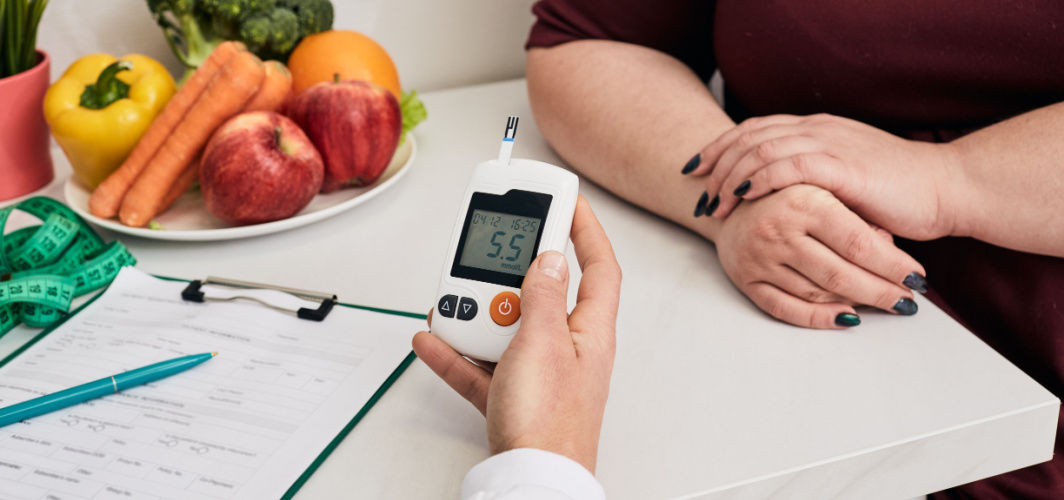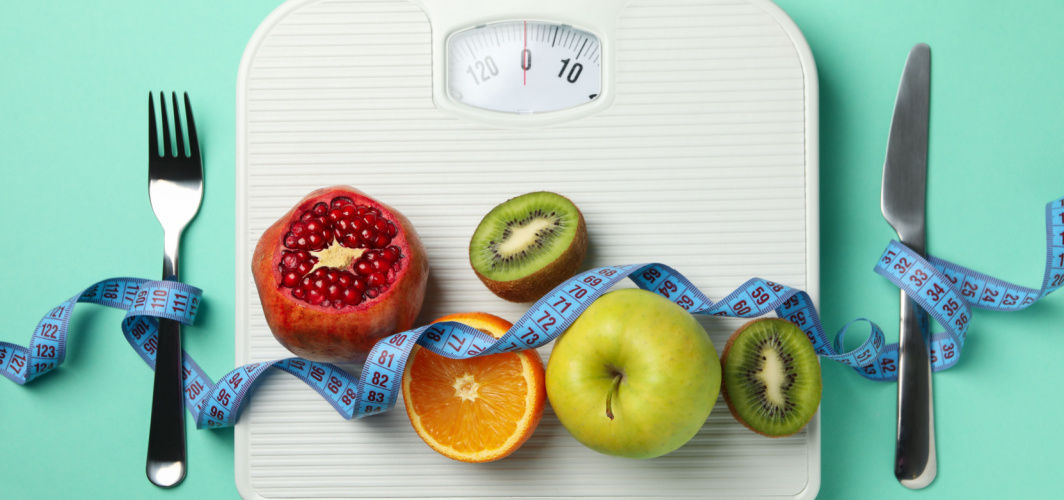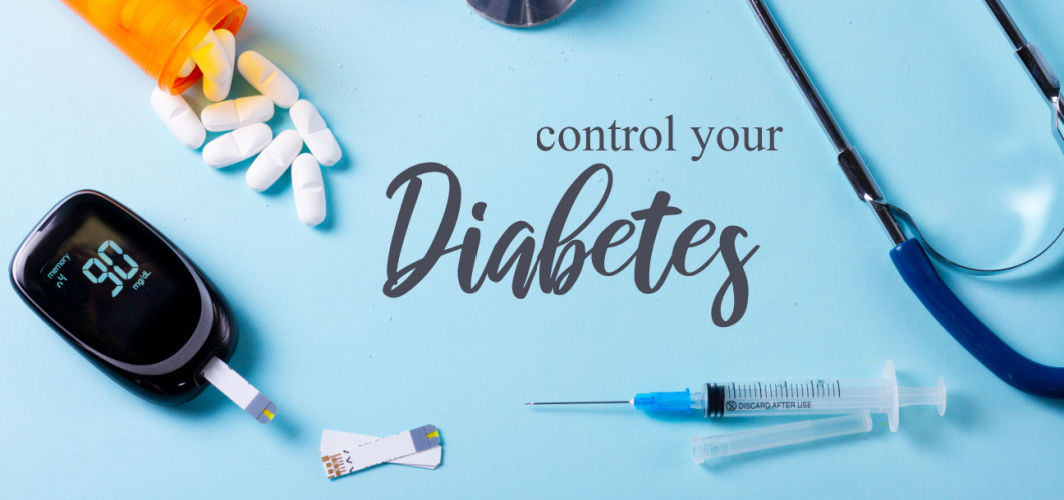Diabetes Management
5 Essential Products Every Diabetic Should Have
5 min read
By Apollo 24|7, Published on - 28 December 2022, Updated on - 05 September 2023
Share this article
0
0 like

It is a known fact that diabetics become more prone to developing other serious health concerns like heart disease and kidney disorders. While managing diabetes can be challenging, having all the necessary things within reach can make it easy and prepare you for any possible emergencies. So, here is a list of the top five must-have items in a diabetes medicine kit.
1. Blood Glucose Monitoring Kit
Diabetics need to keep track of their blood sugar levels. It helps them know when their sugar levels are getting low or high and take action accordingly. A glucose monitoring kit typically includes:
- A monitor that usually provides readings within 5 seconds
- Glucose testing strips which collect the blood sample
- Lancets to make the puncture on the skin
- A carrying case for the kit
Most glucometers come with a memory feature that allows you to keep track of all your previous readings. Some devices also note your daily average sugar levels. Moreover, those who have vision problems can get a glucometer with a voice function to instruct them on how to check their blood sugar levels and read out the results.
Explore Glucose Monitoring Kit
2. Emergency eatables
For diabetics, it’s highly advisable to always have some diabetes-friendly foods in their purses, backpack, car, or gym locker as they may experience a sudden drop in their blood sugar levels, which may be life-threatening. Some of the emergency food items that may help you maintain your blood sugar levels include:
- Low-sugar drinks, water or green tea to stay hydrated
- Healthy snacks like foxnuts that you can grab between meals
- Fast-acting sugar sources like glucose tablets, orange or apple juice, or regular soda in case your blood sugar levels go low. Avoid chocolate as it takes a while to digest.
3. Insulin Essentials
If your condition requires you to inject insulin regularly, then make sure you always have the following supplies:
- Insulin: In case you choose to buy additional insulin supplies, make sure to store the unopened bottles in the refrigerator. You can get the insulin back to room temperature before using it to lessen irritation and pain. You can also keep an opened bottle at room temperature for a month. However, throw out any opened insulin bottles after a month.
- Syringes: You may be able to buy syringes in bulk, which is a good idea as you’ll have easy access to one whenever needed. Some syringes also come with a magnifying lens, which can be put on the syringe to make it easier for you to read the dosage.
- Needles: Like syringes, you can also get needles in bulk if possible. Moreover, you can opt to buy safety guards for shots and to make sure the needle stays steady while injecting yourself.
- A Sharps Container: To ensure the safe disposal of needles, get a sharps container. In case you don't have one, put the cap back on the used needles and put them in a heavy-duty plastic bottle before throwing it.
- Glucagon Shot Kits: For diabetics who take insulin, keeping at least two glucagon shot kits around at all times is essential. It is a stored form of glucose that can help in bringing blood glucose to normalcy in case it suddenly drops below normal.
4. Foot Care Supplies
Diabetics often suffer from several foot problems. Having the following supplies can help:
- Orthopaedic footwear is designed to relieve any discomfort associated with any foot disorder like blisters, calli, corns, bunions, plantar fasciitis, and heel spurs.
- Seamless, padded socks for those who suffer from nerve damage in the feet
- Toenail scissors and a nail file or emery board
5. Skin Care Supplies
Diabetes is known to cause various skin problems. Therefore, to prevent the development of skin conditions and infections, it’s highly recommended to prevent dry skin and immediately tend to any wounds or cuts. Some of the items that can help you take care of your skin include:
- Skin moisturiser
- Mild moisturising soap
- Mild shampoo
- Antibiotic ointment or cream, sterile gauze, cloth bandages or paper tape for cuts
If you are a diabetic, then being prepared at all times can go a long way in managing your condition. Make sure you always have the above-mentioned items within easy reach to prevent any complications arising from your diabetes. Consult an expert and stay prepared with an emergency diabetes kit.
Consult An Apollo Diabetologist
You can also manage your diabetes like a pro with Apollo 24|7's 12-week empower programme.
Medically reviewed by Dr Sonia Bhatt.
Diabetes Management
Consult Top Diabetologists
View AllLeave Comment
Recommended for you

Diabetes Management
Diagnosing Diabetes Early: Know How To Prevent Complications
Early diagnosis of diabetes brings several significant benefits. It facilitates prompt treatment, prevents future complications, enables to plan lifestyle changes, promotes self-management, and provides support. It also helps in controlling blood sugar, avoiding long-term health complications, facilitating healthy habits, taking proper medication, and monitoring blood sugar for better disease management.

Diabetes Management
Maintaining a Healthy Weight in Diabetes: All You Need to Know
Maintaining a healthy weight is vital for individuals with diabetes, offering benefits, as well as reducing the risk of complications. Two key values, BMI and waist circumference, can help you assess your weight status. While BMI categorises weight broadly, waist circumference considers belly fat, a significant factor in diabetes risk. To sustain a healthy weight, adopt a balanced diet, engage in regular physical activity, and monitor blood sugar levels. These measures promote glycemic control and overall well-being for managing diabetes effectively.

Diabetes Management
What Is Pre-diabetes? When Does It Progress Into Diabetes?
Pre-diabetes is a condition in which blood sugar levels are higher than normal but not yet in the diabetic range. It serves as a warning sign, indicating an increased risk of developing type 2 diabetes. Progression to diabetes typically occurs when pre-diabetes is not managed through lifestyle changes. This transition can vary from person to person, but individuals with pre-diabetes can often prevent or delay the onset of diabetes by maintaining a healthy weight, engaging in regular physical activity, and making dietary adjustments to improve blood sugar control.
Subscribe
Sign up for our free Health Library Daily Newsletter
Get doctor-approved health tips, news, and more.
Visual Stories

8 Fruits That are Incredibly Healthy for Diabetes
Tap to continue exploring
Recommended for you

Diabetes Management
Diagnosing Diabetes Early: Know How To Prevent Complications
Early diagnosis of diabetes brings several significant benefits. It facilitates prompt treatment, prevents future complications, enables to plan lifestyle changes, promotes self-management, and provides support. It also helps in controlling blood sugar, avoiding long-term health complications, facilitating healthy habits, taking proper medication, and monitoring blood sugar for better disease management.

Diabetes Management
Maintaining a Healthy Weight in Diabetes: All You Need to Know
Maintaining a healthy weight is vital for individuals with diabetes, offering benefits, as well as reducing the risk of complications. Two key values, BMI and waist circumference, can help you assess your weight status. While BMI categorises weight broadly, waist circumference considers belly fat, a significant factor in diabetes risk. To sustain a healthy weight, adopt a balanced diet, engage in regular physical activity, and monitor blood sugar levels. These measures promote glycemic control and overall well-being for managing diabetes effectively.

Diabetes Management
What Is Pre-diabetes? When Does It Progress Into Diabetes?
Pre-diabetes is a condition in which blood sugar levels are higher than normal but not yet in the diabetic range. It serves as a warning sign, indicating an increased risk of developing type 2 diabetes. Progression to diabetes typically occurs when pre-diabetes is not managed through lifestyle changes. This transition can vary from person to person, but individuals with pre-diabetes can often prevent or delay the onset of diabetes by maintaining a healthy weight, engaging in regular physical activity, and making dietary adjustments to improve blood sugar control.

